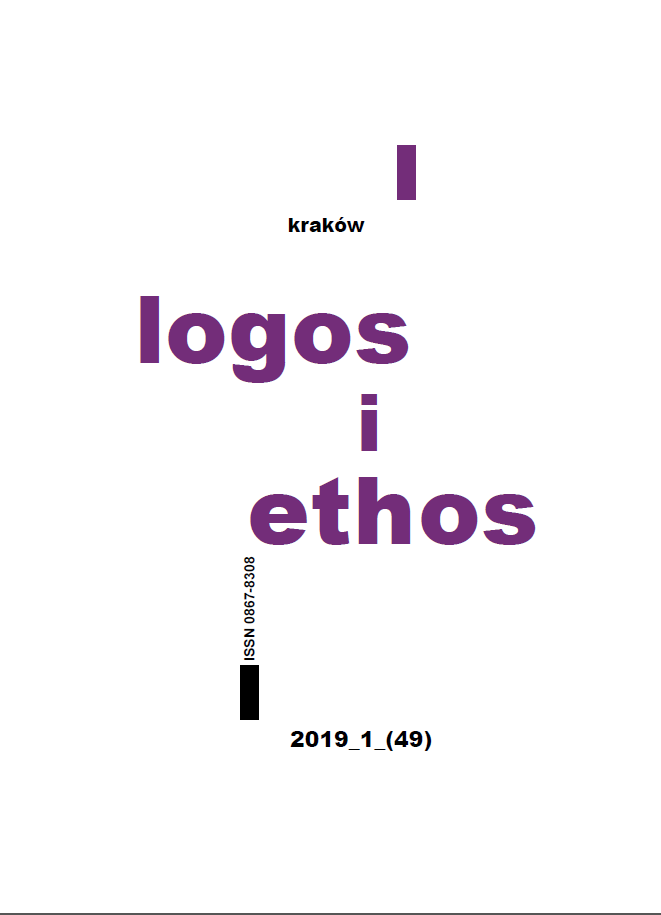Uczciwość a ideały społeczne. W poszukiwaniu nowego wzorca
DOI:
https://doi.org/10.15633/lie.3440Słowa kluczowe:
honesty, elitism, egalitarianism, social ideal, ethical standardAbstrakt
The article considers the problem of the depreciation of standards of integrity in modern societies. It indicates the relations between social ideals and standards defining the implementation of these ideals. In this context, it invokes the thesis of T. Merton, who claims that the standards that hinder the realization of ideals tend to be eliminated from social life. This happens with the standard of integrity in societies where the main ideal is to achieve success in the economic dimension.
The changes in the axiological field are associated with moving away from the elite culture model and choosing an egalitarian model. Liberal ideals in this model are tailored to the needs of the mass. Personal values are replaced with utilitarian values. Egalitarianism, rejecting the elite imperative to improve, leads to resentment. The consequence of this process is depreciating values and moral standards.
The society becomes aware of the bareness of the egalitarian model of culture. Signs of dissatisfaction with the current model and the ideal associated with it become visible, because the degeneration of moral standards leads to the loss of the sense of safety and to the corrosion of people’s relationships.
The history shows that the two described models compete with each other and alternate. Armed with this knowledge, we can support the attempts to develop the elite social projects that are still waiting for a new synthesis.
Bibliografia
Bergson H., Dwa źródła moralności i religii, tłum. P. Kostyło, K. Skorulski, Kraków 1993.
Bettger F., Jak przetrwać i odnieść sukces w biznesie, tłum. E. Sthanke, Warszawa 1993.
Fukuyama F., Koniec człowieka, tłum. B. Pietrzyk, Kraków 2008.
Hume D., Badania dotyczące zasad moralności, tłum. A. Hochfeld, Warszawa 1975.
Janusz Filipiak, jeden z najbogatszych Polaków: Bogacenie się bankierów jest moralnie wątpliwe, http://www.money.pl/gospodarka/wiadomosci/artykul/janusz-filipiak-comarch-open-eyes-economy,84,0,2164820.html (10.10.2016).
Le Bon G., Psychologia tłumu, tłum. B. Kaprocki, Warszawa 1997.
MacIntyre A., Dziedzictwo cnoty. Studium z teorii moralności, tłum. A. Chmielewski, Warszawa 1996.
Maslow A., Motywacja i osobowość, tłum. J. Radzicki, Warszawa 2006.
Maslow A., The farther reaches of human nature, New York 1971.
Maslow A., W stronę psychologii istnienia, tłum. I. Wyrzykowska, Poznań 2004.
Merton R. K., Teoria socjologiczna i struktura społeczna, tłum. E. Morawska, J. Werterstein-Żuławski, Warszawa 1982.
Ortega y Gasset J., Bunt mas, tłum. P. Niklewicz, Warszawa 2002.
Scheler M., Resentyment a moralność, tłum. J. Garewicz, Warszawa1997.
Smith A., Teoria uczuć moralnych, tłum. D. Petsch, Warszawa 1989.
Tatarkiewicz W., Obrachunek i nakazy, uczciwość i dobroć, „Etyka” 1 (1966), s. 161–162.
Zarządzanie respektujące wartości. Raport z badań, red. A. Herman, T. Oleksyn, I. Stańczyk, Warszawa 2016.
Zuziak W., Społeczne perspektywy etyki, Kraków 2006.
Pobrania
Opublikowane
Numer
Dział
Licencja
Autorzy publikujący w czasopiśmie udzielają jego wydawcy zgody o następującej treści:
- Autor zachowuje autorskie prawa majątkowe do utworu, a jednocześnie udziela wydawcy czasopisma zgody na jego pierwszą publikację w wersji drukowanej i wersji online na licencji Creative Commons Uznanie autorstwa 4.0 Międzynarodowe oraz zgody na wykonywanie opracowań, w tym przekładów.
- Autor ma możliwość udzielania zgody niewyłącznej na opublikowanie utworu w wersji, która ukazała się w czasopiśmie (np. zamieszczenia go w repozytorium instytucjonalnym lub opublikowania w książce), wraz z informacją o jego pierwszej publikacji w czasopiśmie.
- Autor może umieścić swój utwór online (np. w repozytorium instytucjonalnym lub na swojej stronie internetowej) jeszcze przed zgłoszeniem utworu do czasopisma.

